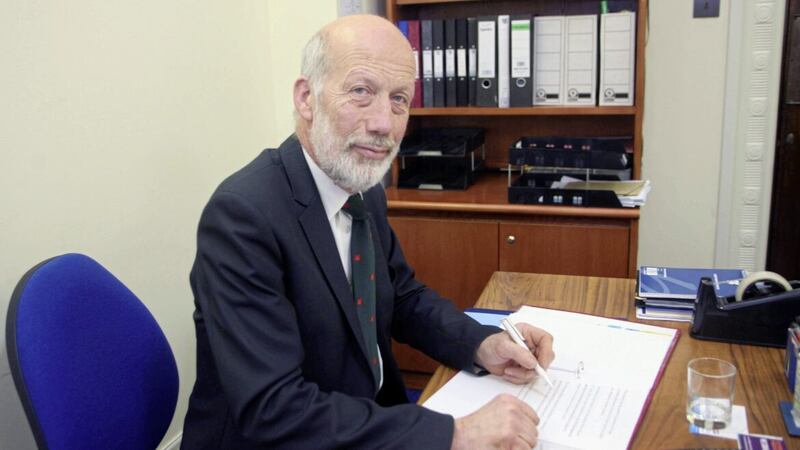Sammy Wilson and Conor Murphy have used the word “lies” while arguing over each other’s positions on the cost of living crisis.
The more complicated reality is that both were telling the truth.
Mr Murphy, the Sinn Féin finance minister, is correct that a huge sum - almost £300 million - has been made available to Stormont and that it cannot be spent without a full executive. Further chances to help are being missed because ministers are unable to move unspent funds around between departments mid-year.
However, DUP MP Mr Wilson is also correct that Stormont needs up to £1.5 billion - a tenth on top of its current budget - just to keep wages in line with inflation and to meet other rising bills.
Arguing over the executive’s collapse avoids having to explain what ministers would do if they were all back at work. Public sector wages would be the priority, according to precedent, politics and contractual obligation. But there is not enough extra money on the table even for that, let alone anything else. So how would the enormous gap be plugged?
Previous DUP and Sinn Féin-led executives have agreed to reduce the size of the public sector and even delivered it with varying degrees of success. Civil service numbers were cut by a tenth in 2015 with a voluntary redundancy scheme. But what the DUP and Sinn Féin mainly agree when the money runs out is that London should send more. Mr Wilson boasted this week of the strength of the British economy; Mr Murphy likes to complain about Tory austerity. Those two opposite spins on a begging bowl are the only difference between them. Both parties have a long-standing policy of freezing the regional rate, Stormont’s main tax raising power. Although some DUP members have suggested examining water charging or higher student fees, their own party has shot them down. Meanwhile, any progress in cutting costs is steadily undone. Mr Murphy is overseeing a civil service recruitment drive that will return numbers to where they were in 2015.
The scale of the challenge facing Stormont is now beyond all such fiddling at the margins. Inflation is a permanent addition to costs and energy prices could be sky-high for years. The restoration of devolution is still seen in terms of a protocol deal acceptable to the DUP. Thinking back to the welfare reform deadlock a decade ago, a wider question arises: do the DUP or Sinn Féin, both essentially populist parties, really want to be back in office having to take the desperately unpopular decisions ahead?
There has been only one stand-out instance since the Good Friday Agreement of a minister proposing the type of change now essential. In 2010, Alliance leader David Ford was appointed the first justice minister under modern devolution and promptly declared the legal aid system was unsustainable and would be swept away. Instead of giving £100 million a year to solicitors - a cost that had doubled in five years - the budget would be directed towards community-based ‘legal clinics’ where people would receive free professional advice. Ford had taken the idea from innovative practice in Canada, the United States and Europe. Of course, it caused absolute horror and nothing came of it. Other parties refused to back the justice minister and defence solicitors went on strike the following year to ensure the system was preserved. As a result, it continues to fall apart. In February this year, the Law Society and the Bar of Northern Ireland warned of “legal aid deserts” in many towns and rural areas as small firms of solicitors go out of business.
Most major public services need reform on the scale Ford was proposing: not staff cuts or budget increases or tweaks here and there but a complete rethink on how they are delivered. Health is the obvious example, and like law would mean tackling professional vested interests. Yet Stormont has ignored two decades of increasingly urgent reports on health reform.
In education, duplicated school sectors mean paying to keep one in seven desks empty. Northern Ireland has been unable to tackle this throughout the century of its existence.
If we do not have political leaders prepared to make profound structural changes, it scarcely matters whether Stormont returns or how much money London gives it to get through the latest crisis. Universal public services will unravel until they are privatised by default. Denying that is the worst lie of them all.









